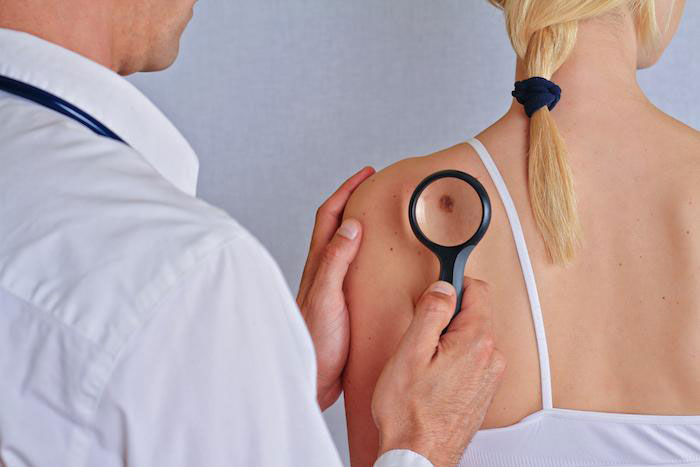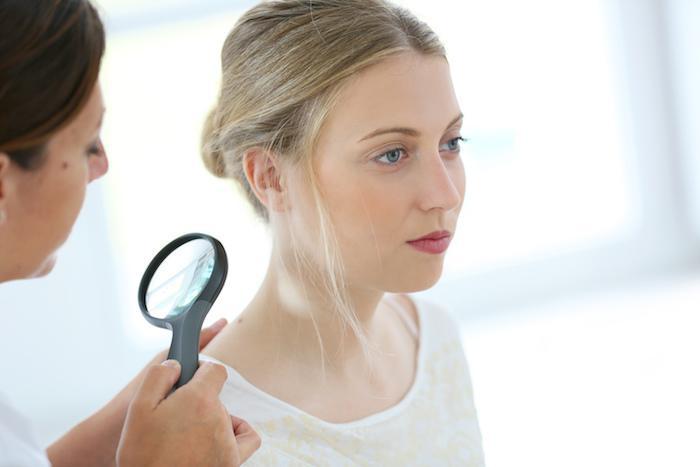You can’t protect yourself from skin cancer if you don’t have accurate information. The myriad myths about what causes skin cancer, how to prevent it, and how serious it is put you in real danger.
To set the record straight, Dr. Robert Skaggs and our team of medical professionals here at Kentucky Skin Cancer Center in Bowling Green and Franklin have compiled a list of the most common misconceptions about skin cancer and the truths that can help you avoid it.
Myth #1: Skin cancer isn’t serious
Let’s be clear — skin cancer can be deadly. According to the Skin Cancer Foundation, every hour, two people die of skin cancer. Most of those deaths are from melanoma, the most deadly type of skin cancer. They estimate that more than 196,000 cases of melanoma are diagnosed each year, and 6,850 of those will cause death.
What’s your risk for melanoma? Men get it about twice as often as women, but the main risk factor is the sun’s harmful UV rays — all it takes is five sunburns in your life to double your chances of getting melanoma.
Myth #2: Skin cancer only affects light-skinned people
Although light-skinned people with blue or green eyes and red or blonde hair tend to skew heavily on the skin cancer scale, people of all skin tones can get skin cancer. The reason it occurs less frequently in people of color is that they have more melanin or pigment in their skin, which is the body’s way of protecting your skin from the sun.
However, enough exposure to UV rays can break past that barrier and cause cancer in dark-skinned people, too, and it typically is not detected until it’s in late stages — which is why skin cancer screenings are critical.
Myth #3: Spending time outdoors is the only way to get skin cancer
Sure, the sun is a major player in determining whether or not you develop skin cancer, but don’t fool yourself into believing that just because you spend most of your time indoors that you’re immune to the disease. Even moderate exposure can do damage over time.
And the sun isn’t the only culprit. Certain medications can increase your sensitivity to the sun, and certain medical conditions, such as lupus, can affect your immune system and your body’s natural defenses.
Myth #4: I’m safe from skin cancer because I only go out when it’s cloudy
One of the most common mistakes people make when it comes to skin cancer is that they fall for the idea that the sun can’t harm you if it isn’t hot outside. In reality, the ultraviolet rays don’t care about clouds. The radiation passes right through them and into your skin where it damages the DNA, which eventually leads to skin cancer.
And speaking of weather, keep in mind that those UV rays bounce off snow, water, and ice, so no matter what the weather or season, even a cold winter day can put you in danger.
Myth #5: I’m safe — I have sunscreen
Sunscreen can definitely help you avoid sun damage and skin cancer — that isn’t a myth. But what you buy and how you use it matter.
The myth is that any sunscreen will do and that applying it in the morning before you go outside to work or play is all you need. Here are a few sunscreen rules:
- Look for broad-spectrum sunscreen to protect against UVA and UVB rays.
- Choose a sun-protection factor (SPF) of at least 30.
- Apply your sunscreen 30 minutes before sun exposure.
- Reapply it every two hours, even if it says “waterproof.”
In addition to sunscreen, It’s smart to wear protective clothing as well if you plan to be out in the sun for long periods of time. Big hats, long sleeves, and long pants go a long way in keeping your skin safe.
Fact: Screenings are your best bet for avoiding skin cancer
Although the facts we just listed make skin cancer sound pretty scary — and it can be — the good news is that it’s highly treatable, especially in its early stages.
Come see Dr. Skaggs before you spot concerning symptoms. A skin cancer screening can alert you to any problem areas that need to be monitored and establishes an official baseline for your skin’s condition.
During a skin cancer screening, Dr. Skaggs examines your skin from head-to-toe looking for any abnormalities. If he finds anything of note, he can address it early or put it on the watch list. Regular screenings are the best way to stay on top of developing skin cancer.
To learn more about skin cancer or to schedule a screening, contact either our Franklin or Bowling Green, Kentucky, office or book your consultation online.






